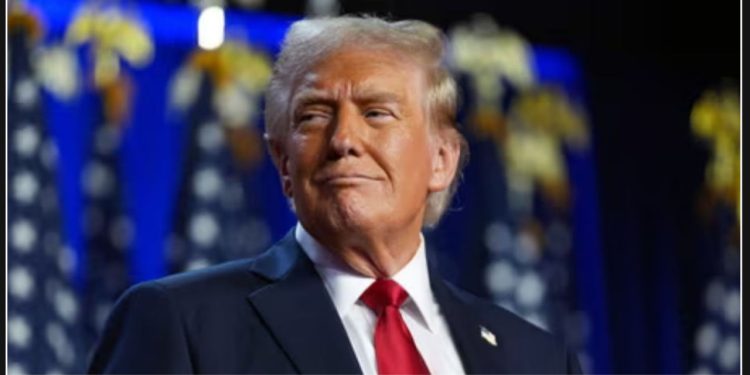With Donald Trump’s 2024 presidential victory, uncertainty now hangs over the estimated 13 million undocumented immigrants in America.
The story of Gabriela, a Bolivian national who has established a life in the United States over two decades, serves as a prime example. Initially, she entered the country by hiding beneath corn stalks in a smuggler’s vehicle. Today, she holds a steady job as a housekeeper in Maryland. Given President Trump’s campaign promises of widespread deportations, anxiety has spread among immigrant communities nationwide.
However, Gabriela maintains a remarkably composed perspective on the matter. “I’m actually not scared at all,” she reflects, emphasizing her commitment to paying taxes and her strong work ethic. “That’s something criminals should be concerned about. I fulfill my tax obligations and I work hard.”
With a certain level of confidence, she adds, “Besides, I don’t have any official documents to prove my status. Therefore, it’s highly unlikely that they would have any knowledge about me.”
The president-elect’s words have caused concerns about possible workplace enforcement operations, disruptions to families, and systematic deportation efforts. Throughout his campaign, Trump consistently pushed for the mass removal of undocumented immigrants, portraying them as burdens on resources and security risks.
However, the specific details of how these operations will be carried out are still unclear. Tom Homan, who has been appointed as Trump’s border tsar and previously served as the acting director of Immigration and Customs Enforcement, has outlined a strategy that focuses on prioritizing the removal of individuals considered to be public safety threats.
In a recent interview on Fox News, Homan expressed his support for the approach, emphasizing the importance of following through on the mandate given by the American people to President Trump. He posed a thought-provoking question, asking which member of Congress, governor, or mayor would be against removing public safety threats from their communities.
During the Biden administration, there were regular deportations, resulting in the removal of over 1.5 million individuals. However, Trump’s proposed approach indicates a more aggressive stance towards deportations. Analysts speculate that operations may extend beyond border regions and involve the use of military assets such as National Guard personnel and aircraft for detention and deportation procedures.
JD Vance, Trump’s running mate, has hinted at initial operations targeting up to one million individuals, but specific plans are still uncertain. It is worth noting that some undocumented immigrants see potential benefits in Trump’s presidency, particularly in terms of economic prospects.
Some people have raised concerns about the enforcement activities, but they still hold an optimistic outlook on the potential economic improvements. This situation poses unique challenges for families with mixed immigration statuses.
According to the American Immigration Council, there are more than five million US citizens who were born to undocumented parents, and they could face significant consequences due to stricter enforcement policies. These families find themselves in complex situations, as they try to navigate through a country that has traditionally offered opportunities for those who seek a better life.

